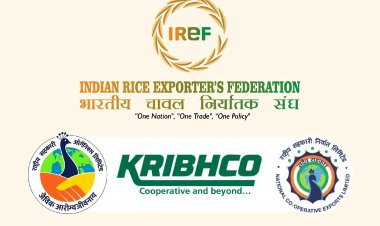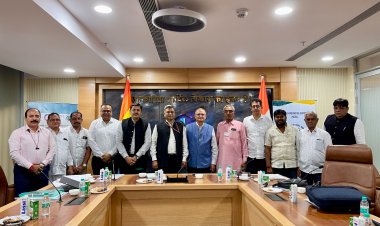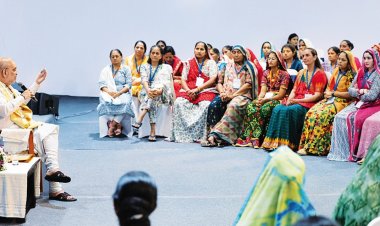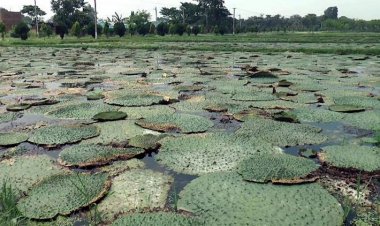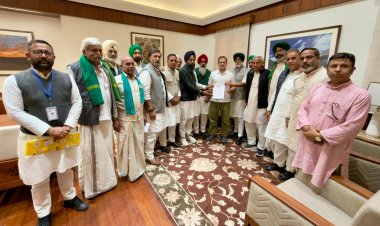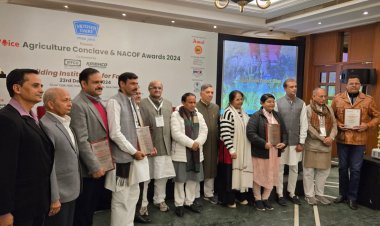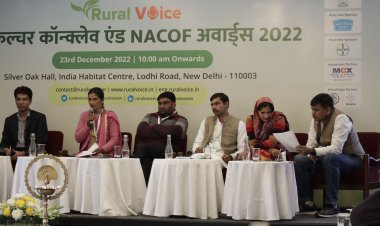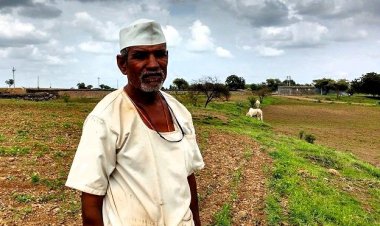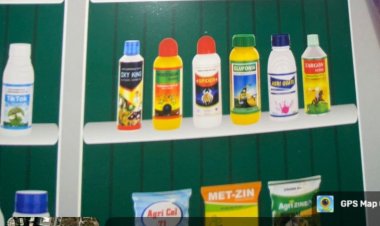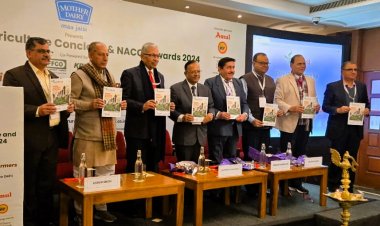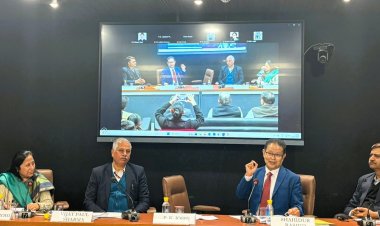We have to depend on cooperatives for food security in future: Konda Reddy Chavva
Konda Reddy Chavva, Assistant FAOR, Food and Agriculture Organization (FAO), spoke about the case studies of agricultural cooperatives in five developed countries — Japan, Denmark, the Netherlands, New Zealand and France — in order to learn from them. Chavva also spoke about how FAO views cooperatives. He was speaking at the second session of the Dialogue on “Sahakar se Samriddhi: Many pathways” organized by Rural Voice in association with Sahakar Bharati. The topic for the second session was “Global experience in cooperation: How India can benefit”.
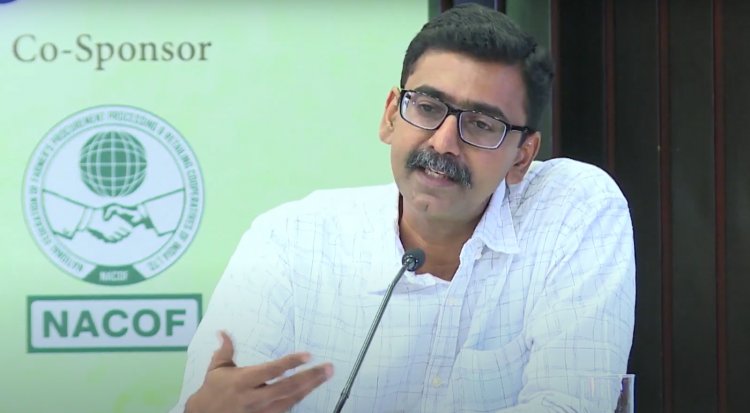
Konda Reddy Chavva, Assistant FAOR, Food and Agriculture Organization (FAO), spoke about the case studies of agricultural cooperatives in five developed countries — Japan, Denmark, the Netherlands, New Zealand and France — in order to learn from them. Chavva also spoke about how FAO views cooperatives. He was speaking at the second session of the Dialogue on “Sahakar se Samriddhi: Many pathways” organized by Rural Voice in association with Sahakar Bharati. The topic for the second session was “Global experience in cooperation: How India can benefit”.
Japan has a national collective called Japan Agriculture Cooperative (JAC), which consists of 694 regional cooperatives. These cooperatives do everything from input supply to farmers to packaging, transportation and marketing. They also offer financial services to the farmers. “The JAC has remained the backbone of the small-farmer-dominated agriculture sector in Japan,” said Chavva. When the Japanese model was implemented in Bangladesh, what was learnt was that it helps in eradicating intermediaries and making cooperatives a strong economic organization.
In Denmark, Chavva said, the major food enterprises are farmer-owned cooperatives. They are among the world’s largest exporters of safe, high-quality agricultural products. The ownership rights rest fully with the members of the cooperatives and the profit is divided among them. The cooperatives lead to the integration of the value chain from farm to fork. They have promoted, said Chavva, “transparency, traceability, food security, and innovation.” They also succeeded in building market power. What we can learn is that “the local farmers must be committed and must be the main drivers of the cooperative process,” said Chavva. Besides, he said, government support is very critical. Cooperatives are helpful in eradicating poverty from the rural population in the long term.
Speaking about the Netherlands, Chavva said there are 41 cooperatives in the country. There are several “enabling factors” for the success of the cooperatives there, said Chavva. The legislation is quite supportive. There is a less diverse membership. They continue to evolve: Anything that is no longer relevant to the cooperative framework is constantly eliminated.
Chavva said that New Zealand had about 40 cooperatives that generated about $28bn in revenue. Despite being a small country, it has 29 per cent of its population as cooperative members. Their contribution to the GDP is 19 per cent. They have an industrial body called the Cooperative Business of New Zealand which unites the different range of membership-owned businesses within New Zealand.
In France, there are about 1,000 agricultural cooperatives focusing on wine, cereals and dairy. They help establish the supply chain and member commitment, said Chavva. In France, as the cooperatives grow larger, the membership commitment lessens. This, Chavva said, does not apply in the Indian context, however, and he cited Amul’s example.
After talking about the five countries, Chavva talked about FAO, the organization he represents. He said, “We recognize that cooperatives play an important role in inclusive and efficient functioning, particularly for small agricultural producers and marginalized groups.” Also, FAO recognizes that a cooperative “empowers members both economically and socially and creates sustainable rural employment via business models that are resilient to economic as well as environmental jobs.”
The role of cooperatives, it seems, will only grow larger in times to come. Smallholders will provide much of the extra food needed to feed the growing population towards 2050, so “we have to depend on cooperatives for food security,” said Chavva, “because cooperatives work with small, marginal farmers.” Also, Chavva said, “to achieve SDGs (Sustainable Development Goals), cooperation is a must.”
When we talk about cooperation, it has to be not only cooperatives within a country but also learning between cooperatives of developed and developing countries, amongst developing countries. This is something we have to advocate for and promote, said Chavva.
Agricultural cooperatives also play an important role in ensuring tenure security of small farmers, said Chavva. Besides, strong cooperatives can advocate for their members’ needs and also engage in discussions with policymakers to support the establishment of an enabling environment for responsible agricultural investments. Also, cooperative members could themselves adopt responsible agricultural investments, in terms of managing risks and using natural resources sustainably, and help raise the income and productivity of farmers besides generating inclusive employment opportunities.



 Join the RuralVoice whatsapp group
Join the RuralVoice whatsapp group


















